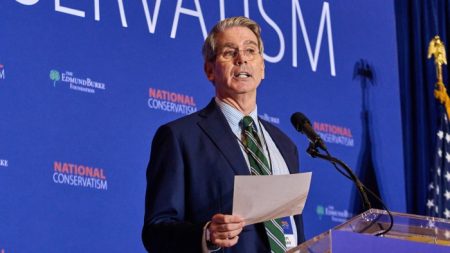Boris Johnson, Britain’s former prime minister, has been condemned for lying to parliament over the Covid “partygate” scandal, in a damning report that casts doubt on whether he can ever stage a political comeback.
The report by MPs on the House of Commons privileges committee published on Thursday is a searing indictment of Johnson’s conduct in high office, finding him to have committed multiple contempts of parliament.
The committee said if Johnson had not already quit as an MP, he should have been suspended from the Commons for 90 days for “repeated contempts and seeking to undermine the parliamentary process”.
The report found that he deliberately misled the Commons, lied to the committee, breached confidence, impugned the panel and was complicit in a “campaign of abuse and attempted intimidation of the committee”.
A series of parties were held in Downing Street and Whitehall during the coronavirus pandemic — Johnson was himself fined by police for breaking Covid lockdown regulations — but the then prime minister repeatedly denied to MPs that any rules had been broken.
“There is no precedent for a prime minister having been found to have deliberately misled the House,” said the privileges committee’s report. “He misled the House on an issue of the greatest importance to the House and to the public, and did so repeatedly.”
In a further blow to Johnson, the cross-party panel also recommended that he should “not be granted a former member’s pass” — restricting his access to the parliamentary estate.
Johnson quit as an MP last Friday after receiving a draft of the report by the committee, claiming he was the victim of a “political hit job” by a “kangaroo court”.
Johnson jumped before being pushed: if he had remained an MP, the account of deceit and misconduct contained in the committee’s 108-page report would have almost certainly resulted in him being ousted from parliament.
The report will be considered by all MPs next week. If the Commons endorses its findings that he deliberately misled parliament, it will represent an ignominious coda to Johnson’s premiership.
Johnson on Thursday lashed out at the committee, claiming he was the victim of a “vendetta” and that the report was “intended to be the final knife-thrust in a protracted political assassination”.
He said the committee’s assertion that he deliberately lied to parliament was “deranged”, adding: “This is rubbish. It is a lie.” He said all the events referred to in the report were lawful.
The seven-member committee recommended that Johnson — if he had still been an MP — should be suspended from the Commons for 90 days. Johnson’s constituents in Uxbridge and South Ruislip could then have moved a recall petition, triggering a parliamentary by-election.
Johnson, prime minister from July 2019 until September 2022 and a former mayor of London, was one of Britain’s most controversial leaders in recent times and the most powerful advocate of the Brexit cause.
He took the UK out of the EU in January 2020 but his premiership was immediately engulfed in the coronavirus crisis. The pandemic almost claimed Johnson’s life, but his conduct afterwards was to prove his downfall.
The privileges committee, chaired by veteran Labour MP Harriet Harman, concluded that Johnson knew very well Covid rules had been broken — hearing evidence from multiple officials who worked in Downing Street at the time — and that he deliberately misled MPs.
Such a judgment would normally mark the end of a political career, but Johnson has shown in the past he plays by different rules. He has said he has left parliament “for now”, leaving open the possibility of a return at next year’s general election.
He and his allies hope that Tory party members will agree that Johnson is the victim of an establishment stitch-up, echoing the tactics of former US president Donald Trump.
Many Tory MPs have already said that Rishi Sunak should block Johnson from the party’s parliamentary candidates list.
But Johnson made it clear on Thursday he would not be going quietly. “This report is a charade,” he said. “I was wrong to believe in the committee or its good faith. The terrible truth is that it is not I who has twisted the truth. It is Harriet Harman and her committee.”
Read the full article here













